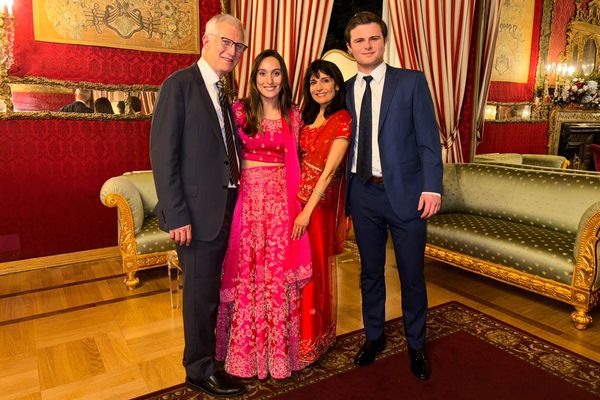Few names in the motorcycle industry carry the kind of global weight that Honda does. With a presence in over 160 countries and manufacturing facilities across multiple continents, Honda has long been the benchmark for two-wheeled reliability, accessibility, and innovation.
The Japanese giant isn’t just one of the world’s biggest motorcycle manufacturers—it’s a mobility leader that consistently drives innovation and ultimately lays the groundwork for future industry trends.
And nowhere is that leadership more evident than in India.
India isn’t just another market for Honda—it’s the market. The country is the single largest motorcycle and scooter market in the world, with tens of millions of units sold annually. For the majority of Indian commuters, two wheels aren’t a luxury or a lifestyle choice. Rather, they’re quite literally a daily necessity. Sort of like food, water, and shelter.

From crowded city streets to remote rural towns, motorcycles and scooters form the backbone of personal transport, logistics, and food and parcel deliveries across the country.
This context makes Honda Motorcycle & Scooter India’s (HMSI) sales performance especially significant, as it’s a make-it-or-break-it market. If they make a bike exclusively for India that flops, well, they’re pretty much screwed. But if they make a bike that sells like hotcakes, well, they might as well have hit the jackpot in the lottery.
That said, the numbers paint a pretty good picture for Honda. The company closed the fiscal year with total sales of 5.83 million units, reflecting 19 percent year-on-year growth. In March 2025 alone, Honda moved 427,448 units, including 401,411 domestic sales and 26,037 exports. These aren’t just strong numbers—they’re a signal that India’s two-wheeler market remains not just resilient, but essential.
Much of this growth is being driven by HMSI’s broadened product strategy. The brand entered the electric mobility space with the Activa e: and QC1, both launched earlier this year. It also debuted the CB300F Flex-Fuel, India’s first 300cc flex-fuel motorcycle. On top of that, its full lineup was refreshed to meet OBD2B emissions (sort of like India’s version of Euro 5+) standards, keeping Honda’s portfolio future-ready.

HMSI’s Shine and SP125 commuter models also crossed major milestones, with three million units sold in Eastern India and one million in Madhya Pradesh, while total sales in South India surpassed 20 million units. And in the premium space, its BigWing brand continued expanding with refreshed models like the NX200, CB650R, and CBR650R.
Honda’s scale and adaptability in India say a lot about the country’s role in the global motorcycle landscape. As many developed markets lean toward cutting-edge electric cars and micromobility solutions, India stands as a two-wheeler titan. This makes the Indian market a hotbed for innovation in electric, alternative fuel, and smart mobility tech.
For Honda, it means doubling down on an already-successful strategy. For India, it signals a growing alignment with global sustainability goals. And for the broader motorcycle industry, it’s a clear message: if you want to understand the future of two-wheeled mobility, look east.
Sources: The Economic Times, AutoCar Pro







